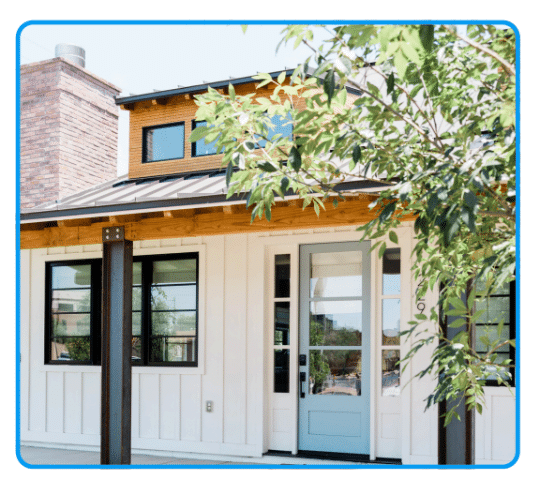What Hurts a Home Appraisal?
When buying, selling, or refinancing a property, a home appraisal is a critical step that determines the value of a home. An appraisal provides a professional opinion of a home’s market value, which is essential for securing a mortgage, setting a home’s sale price, or understanding a property’s worth for legal and tax purposes. However, several factors can negatively impact this valuation, potentially leading to a lower appraisal than expected.
In this blog, we’ll explore what hurts a home appraisal. Understanding these factors can help homeowners and prospective buyers make informed decisions and take proactive steps to mitigate issues that could detract from a home’s value. Whether it’s external influences like neighborhood conditions or internal aspects such as the home’s maintenance, each element plays a significant role in the appraisal process. By the end of this discussion, you’ll have a clearer insight into what appraisers look for and how to best prepare your property for valuation.
What Negatively Affects Home Appraisal?
Appraisals are not just about the home itself; they also consider the broader context of where the home is located. Here are some key things that hurt a house appraisal:
Neighborhood Conditions:
The environment surrounding your home heavily influences how much your home is worth. Properties in neighborhoods with well-maintained homes, access to good schools, and community facilities like parks and recreation centers typically appraise higher. Conversely, factors like proximity to busy roads, freeway intersections, and train tracks can negatively impact your home’s value. The presence of abandoned or poorly maintained properties can also lead to a lower appraisal.
Environmental Risks:
Homes located near environmental hazards can see their appraisal values impacted negatively. For example, properties close to flood zones, areas prone to wildfires, or near large industrial facilities may be valued lower due to the increased risk and potential insurance complications. Appraisers take these risks into account as they can significantly affect a property’s attractiveness and safety.
Zoning Changes
Zoning regulations, which control land use in an area, can also affect home values. If a zoning change allows for new developments that are less desirable, such as industrial buildings near a residential area, it can negatively impact home values in the vicinity. Furthermore, changes related to eminent domain, where the government can take private land for public use, can also influence property values and appraisals. Keeping informed about potential zoning changes in your area is crucial as they can directly affect your property’s market value.
Internal Factors Within the Home
While external factors are crucial, the condition and features of your home play a significant role in its appraisal value. Here are some internal factors that can negatively impact an appraisal:
Outdated Features
Modern conveniences and decor are not just about aesthetics; they significantly impact a home’s marketability and value. For example, a home appraised by TAG had significantly lower valuation because it retained a 1970s- style kitchen and bathrooms, while comparable properties in the area featured modern, updated fixtures and finishes. This discrepancy can make a home less appealing to buyers, thereby lowering its appraised value.
Poor Maintenance
Regular maintenance is crucial in preserving a home’s value. Another case from TAG involved a home with a leaking roof, an outdated hvac system, and old plumbing. These issues not only pose safety risks but also lead to substantial decreases in appraisal values because they require immediate, costly repairs that future homeowners would need to undertake.
Functional Obsolescence
Sometimes, the very design of a home can make it less desirable. For instance, a home appraised by our team had a layout where bedrooms were accessible only through other bedrooms, a style that has fallen out of favor due to its lack of privacy and convenience. Such design flaws can significantly detract from a home’s usability and appeal, leading to lower appraisal values.

Market Conditions and Economic Factors
The value of your home is not only determined by its physical condition and location but also by broader market conditions and economic factors. Here’s how these elements can influence your home’s appraisal:
Real Estate Market Trends
Local and national real estate market trends play a significant role in determining property values. For example, if there is a high demand for homes but a low supply in your area, this can drive up home prices and, subsequently, appraisal values. Conversely, if the market is flooded with properties but there’s little demand, values can drop. For current insights on how these trends are playing out in North Carolina, you can read more on Norada Real Estate’s analysis.
Economic Climate
The broader economic environment also impacts home appraisals. High interest rates can reduce the number of potential homebuyers in the market, as borrowing costs are higher. Similarly, if employment rates are low and economic forecasts predict a downturn, potential buyers’ purchasing power decreases, which can lead to lower property values. The economic uncertainty triggered by COVID-19 had a profound effect, influencing interest rates and employment rates, which in turn affected property values. Appraisers consider these factors to gauge a property’s potential marketability and price in the current economic climate.
Unique Home Features That May Be Detrimental
Sometimes, the very things that make your home unique can also diminish its appraisal value. Customizations and improvements that stray too far from the norm can be less appealing to the general market. Here are a couple of examples from TAG’s experience:
Over-customization
Highly personalized designs may reflect your style and personality, but they can also limit the pool of interested buyers, thereby reducing your home’s market value. For instance, one home appraised by TAG featured an elaborate medieval-themed decor complete with stone walls and knight armors. While fascinating, this unique design appealed to a very niche market and was valued lower than more traditionally styled homes in the same area.
Unusual Home Improvements
Renovations that do not align with neighborhood standards can also detract from a home’s value. A recent appraisal by TAG involved a home that had converted a two-car garage into a large art studio. While perfect for the artist homeowner, this modification significantly reduced the home’s appeal to typical buyers in the area who valued garage space for parking and storage. Additionally, because the art studio was not heated and cooled, it could not be utilized as a living space, or be categorized as gross living area (GLA) on the appraisal report, further limiting its functionality. Consequently, the home received a lower appraisal value.
Property Lien Hurdles
Liens against a property, typically due to unresolved debts, can drastically affect its appraisal. These liens may be from unpaid property taxes, homeowner association fees, or contractors. For example, one home we appraised had a significant lien from a contractor dispute, which decreased its market value because any potential buyer would assume the debt responsibility. Ensuring all debts are cleared before an appraisal is crucial to avoid reducing your home’s value. For more information on property liens, you can refer to this Forbes article.

What Hurts a Home Appraisal for Refinance?
Refinancing your home can provide financial benefits, but certain factors might negatively impact the appraisal value during this process. Understanding these can help you prepare effectively. Here are some common issues that hurt the home appraisal process for refinancing:
High Loan-to-Value Ratio
When you borrow a high percentage of your home’s value, it poses a risk to lenders, especially if the market fluctuates downward. A high loan-to-value (LTV) ratio can lead to a cautious appraisal, as the mortgage lender wants to ensure they can recover the loan amount if the property needs to be sold. This might mean your home appraises for less than expected if the appraiser factors in the potential for market decline.
Previous Appraisal Issues
If your home had issues in past appraisals, these could haunt its current evaluation. For instance, if an earlier
appraisal noted foundational problems or unpermitted additions, these issues would likely need to be resolved,
or they will continue to impact subsequent appraisals negatively. It’s important to address any derogatory marks
from past appraisals before attempting to refinance.

Economic Downturns
Broader economic downturns can severely affect home values. During economic recessions or local industry setbacks, property values tend to drop as buyer demand decreases and unemployment rates rise. Such conditions can lead to conservative appraisals, which might affect your ability to refinance or the terms you receive.
How to Prepare for a Home Appraisal for Refinancing
To mitigate these factors, ensure your home is in good repair, gather all renovation documents if any, and consider timing your refinance application during stable economic conditions. Furthermore, having documentation of all updates and repairs can provide the appraiser with a comprehensive view of your home’s condition and value.
How to Mitigate Factors That Hurt Home Appraisals
Ensuring your home is valued at its best is crucial, especially if you are considering selling or refinancing. By taking proactive steps, you can positively influence your home’s appraisal. Here are some key strategies to mitigate factors that could otherwise hurt your home appraisal:
Pre-Appraisal Checklist
To prepare your home for appraisal and ensure the best possible valuation, consider the following steps:
Clean and Declutter: A clean home makes a good first impression. Tidy up both inside and outside to present
your property in the best light.
Make Minor Repairs: Fix any small issues like leaky faucets, broken tiles, or holes in the walls. These small fixes
can make a big difference in the appraiser’s assessment.
Document Improvements: Provide the appraiser with a list of improvements and upgrades you’ve made to
the property. This could include anything from a new roof to updated appliances or energy-efficient windows.
Check Safety Equipment: Ensure that all safety equipment, such as smoke detectors and carbon monoxide
detectors, are in working order.
Prepare Documentation: Have all necessary documents on hand, including permits for any additions or
major renovations.
Regular Maintenance Tips
Ongoing maintenance is vital to prevent issues that could decrease your home’s value:
- Regularly Inspect the Roof and Foundation: These are critical parts of your home’s structure, and issues here can lead to significant devaluation.
- Keep Systems Updated: Regularly service major home systems such as heating, cooling, plumbing, and electrical systems to ensure they are in good working condition.
- Landscaping: Keep your yard well-maintained. Trim overgrowth, remove dead plants, and ensure your lawn is healthy. Good landscaping can boost curb appeal and, by extension, appraisal values.
- Paint: Keeping interior and exterior paint fresh can go a long way in maintaining the aesthetic appeal of your home.

Safeguard Your Home's Value
By following these tips, you can maintain and possibly increase your home’s appraisal value, ensuring that you get the best outcome from your investment.
Understanding what hurts a home appraisal is crucial for any homeowner looking to sell, buy, or refinance their property. We’ve discussed how external factors like neighborhood conditions and zoning changes, internal factors such as outdated features and poor maintenance, market conditions, and unique home features can all negatively impact an appraisal. We’ve also explored legal and administrative hurdles that can further complicate the valuation process.

If you’re considering an appraisal or are concerned about potential valuation issues, it’s essential to consult with a professional appraiser. At Triangle Appraisal Group (TAG), our experts are equipped to help you navigate these complexities and ensure that you receive a fair and accurate assessment of your property’s value.
Don’t let preventable factors negatively affect your home appraisal. Fill out our form today to start taking proactive steps to secure the best possible outcome for your property- TAG us in!
Read More:
FAQs
No, appraisers typically do not look under sinks. Their primary focus is on the overall condition and features of the home, rather than detailed inspections of specific areas. However, ensuring that areas like under sinks are clean and free from leaks can contribute to a positive impression. During an FHA appraisal, checking under sinks is more likely as it focuses on functionality, health, and safety. Ensuring everything is working properly is beneficial as issues will be noticed throughout the real estate process.
While a messy house does not directly affect the structural value, it can impact the appraiser’s perception of how well the home has been maintained. Excessive clutter and mess can make it difficult for the appraiser to see the true condition of the home, potentially leading to a less favorable appraisal.
Yes, decluttering can positively impact an appraisal. A tidy, organized home allows the appraiser to accurately assess the condition and quality of the property without distractions. Removing clutter highlights the space, makes the home appear well-maintained, and can create a better overall impression, potentially enhancing the appraisal value.
Flooring plays a significant role in an appraisal. High-quality, well-maintained flooring can increase the home’s value, while damaged or outdated flooring can detract from it. Investing in good flooring materials and keeping them in excellent condition helps to present your home in the best light and can positively influence the appraisal.


